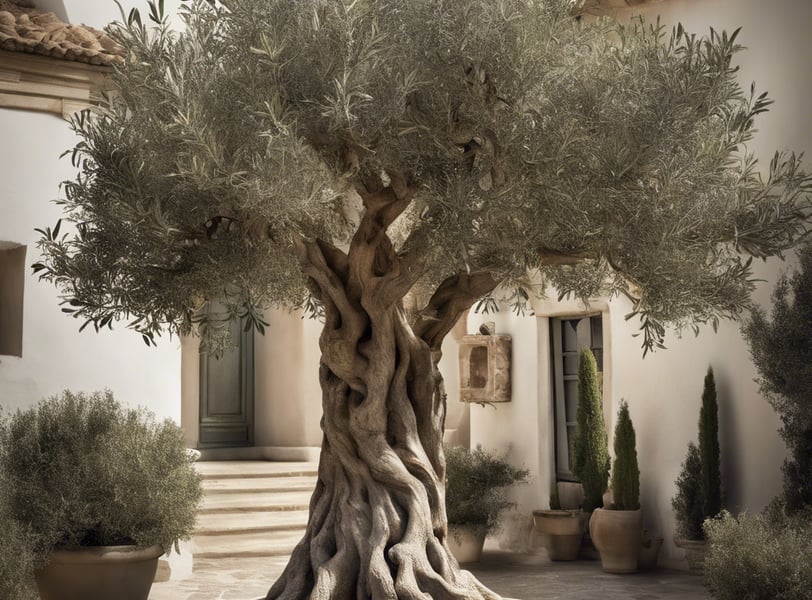The Historical Evolution of Olive Oil: From Ancient Origins to Modern Significance
2/8/20243 min read


Olive oil, a staple in Mediterranean cuisine, has a fascinating history that spans thousands of years. From its humble beginnings in ancient civilizations to its modern-day significance, olive oil has played a pivotal role in shaping cultural traditions and culinary practices. This article explores the captivating journey of olive oil through the annals of history, tracing its roots and highlighting its enduring appeal.
Ancient Origins
The origins of olive oil can be traced back to ancient civilizations, particularly those in the Mediterranean region. The olive tree, known scientifically as Olea europaea, is native to this area and has been cultivated for its fruit and oil for over 6,000 years.
Ancient Egyptians, Greeks, and Romans all recognized the value of olive oil and incorporated it into their daily lives. In ancient Egypt, olive oil was not only used for cooking but also for religious rituals and as a cosmetic product. The Greeks and Romans considered olive oil to be a symbol of wealth and power, using it in various aspects of their society, including cooking, medicine, and even as a fuel for lamps.
The Mediterranean Influence
As civilizations expanded and trade routes developed, the popularity of olive oil spread throughout the Mediterranean region. Olive oil became a fundamental part of the Mediterranean diet, which is renowned for its health benefits and longevity.
The Mediterranean climate, with its mild winters and hot, dry summers, provides the ideal conditions for olive trees to thrive. The cultivation of olives and the production of olive oil became deeply ingrained in the cultural fabric of Mediterranean societies.
Not only was olive oil used for cooking, but it was also valued for its medicinal properties. Ancient Greeks and Romans believed that olive oil had healing properties and used it to treat various ailments. Hippocrates, the father of medicine, even prescribed olive oil as a remedy for a range of health conditions.
The Renaissance and Beyond
During the Renaissance, olive oil continued to hold cultural and economic significance. The Italian city-states, particularly Florence and Venice, became major centers of olive oil production and trade. Olive oil became a symbol of prosperity and was highly sought after by European nobility.
As European explorers set sail in search of new trade routes, they discovered new lands suitable for olive cultivation. Olive trees were introduced to regions such as the Americas and Australia, further expanding the global reach of olive oil.
In the modern era, olive oil has gained recognition for its health benefits and versatility in the kitchen. Scientific research has confirmed the numerous health benefits associated with olive oil, including its high content of monounsaturated fats and antioxidants.
Olive oil is now a staple in many cuisines around the world, not just in Mediterranean countries. It is used in a variety of dishes, from salads and marinades to sautéing and baking. Chefs and home cooks alike appreciate the rich flavor and versatility that olive oil brings to their culinary creations.
Modern Significance
Beyond its culinary uses, olive oil has also found its way into the world of beauty and skincare. Many skincare products now contain olive oil due to its moisturizing and nourishing properties. Olive oil is also used in traditional soap-making, producing gentle and luxurious soaps that are beneficial for the skin.
The production of olive oil has also become an important industry, supporting local economies and providing employment opportunities. Olive oil festivals and events celebrate the rich heritage and craftsmanship associated with olive oil production, attracting tourists and fostering cultural exchange.
Furthermore, the sustainability and environmental impact of olive oil production have gained attention in recent years. Sustainable farming practices and the preservation of olive groves have become priorities for producers, ensuring the longevity and quality of olive oil for future generations.
In Conclusion
The historical evolution of olive oil is a testament to its enduring significance. From its ancient origins in Mediterranean civilizations to its modern-day prominence, olive oil has left an indelible mark on cultural traditions and culinary practices.
Whether it's drizzled over a salad, used in cooking, or incorporated into skincare products, olive oil continues to captivate and inspire. Its rich history and versatility make it a true culinary and cultural treasure.
Copyright ©️ 2024 Eros Elias - All rights Reserved
Privacy Policy
Terms and Conditions
Subscribe to our newsletter
Contact
